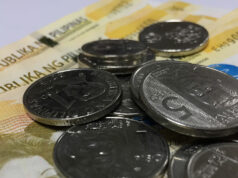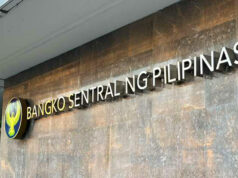Coins.ph gets central bank license
COINS.PH said it has captured over 2 million customers using its mobile wallet service, with its client base expected to grow further after securing its registration with the Bangko Sentral ng Pilipinas (BSP).
In a statement, the financial technology firm said it has secured a certification from the regulator to formally operate in the Philippines as an electronic money (e-money) issuer.
“The new license allows Coins to accept and hold customer funds, and extend the functionality of its online and offline payment services. The company already has a very active customer base using its existing payments, remittance, air-time, and bill-pay services,” the non-bank firm said.
BSP Deputy Governor Chuchi G. Fonacier confirmed this, saying via text: “Yes. Coins.ph is licensed both as electronic money issuer and also as remittance agent.”
Coins is a mobile app-based platform that serves as an e-wallet and mobile dock for multiple bank accounts, allowing users to send and receive money across members and non-registered users. Transfers may be made via Coins wallets, e-mail, and text message orders.
The credit may then be converted into cash through the brick-and-mortar merchant partners like convenience stores and pawnshops.
E-money transactions totalled P1.1 trillion in 2016, marking an all-time high for the Philippines, according to central bank data.
There are 35 accredited e-money issuers as of July 25, according to the BSP’s Web site. Of this number, 28 are banks.
Ron Hose, chief executive officer of Coins, said securing a regulatory license in the Philippines shows the company’s commitment to providing a “safe and secure” e-wallet which the public can use.
Coins.ph recently secured $9.5 million in fresh funding from venture capital firms Quona Capital and Naspers Ventures, which will fuel the digital firm’s expansion plans for its operations.
The Coins platform makes use of the blockchain technology in processing transactions. Currently, the firm operates in the Philippines and Thailand.
The central bank has been allowing the entry of more non-bank players into serving the public, as part of its National Retail Payment System framework which targets wider use of digital payment platforms. The BSP has been embracing the use of technology to spur wider access to financial services while also bringing down transaction costs for Filipinos.
The BSP is eyeing to raise the share of digital payments to 20% of total transactions by 2020, from a measly 1% share in 2013.
Based on industry estimates, there are roughly 2.5 billion in total monthly transactions, with nearly all settled using cash. — Melissa Luz T. Lopez



